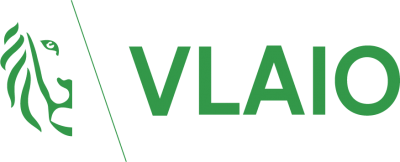Topics
We organise our actions in six thematic & strategic agendas:
Strategic Agendas:
Bio-economy
Circular Construction
Chemicals/Plastics
Manufacturing Industry
Food Chain
Water Cycles
Seven leverages provide additional support:
Leverage effects:
Lever Policy Instruments
Lever Circular Procurement
Lever Communication
Lever Innovation & Entrepreneurship
Lever Financing
Lever Jobs & Skills
Lever Research
What, why and how?
Why are we pursuing a circular economy?
Future visions 2050
How do we see our circular future?
About our management
Who steers what at Flanders Circular?
WAVE (WAter Vision@fEstivals)
Festivals want to recycle
Many festivals take place during the summer period. During these events, thousands of festivalgoers and accompanying personnel use a lot of mains water and drinking water in PET bottles, and a lot of waste water is created.
Experience shows that festival organisers of small and medium-sized festivals have little insight into their water flows and water management. At the same time, organisers are increasingly keen to profile themselves as sustainable festivals.
That is why the creative minds of Dranouter Festival, Ghent University, Vlakwa, BOSAQ and Tuincreatie Wouter Igodt have set up the Water Vision @ fEstivals (WAVE) project. The goal of this project is to get a better view on the water management of festivals and how we can organise this more sustainably.
Specifically, we want to map the entire water cycle of the medium-sized Dranouter festival. In doing so, we focus on 6 objectives: conducting a sustainability scan, mapping the water management, implementing a more sustainable waste water management, optimising the spatial layout for a more efficient water supply and discharge, a pilot project for the recovery of raw materials and drinking water from urine, and an investigation into alternatives for PET bottles and disposable cups.
With this project, we also hope to set an example and have a direct positive, sustainable influence on the behaviour of festival-goers and other festival organisers.
Folkfestival Dranouter
Partners Universiteit Gent, Tuincreatie Wouter Igodt, BOSAQ, Vlaams Kenniscentrum Water (Vlakwa)
Sectors
Themes
Organisations
Website
MOST IMPORTANT
RESULTS
- We had a sustainability scan carried out by Ghent University in order to identify the best available practices in the field of water use, energy consumption and waste management and to make an economic assessment for this.
- In order to get a better view on our water management, a water scan was carried out which extensively mapped the different water flows on the festival site and their flows.
- We succeeded in offering festivalgoers 'Dranouter water': rainwater purified on site by a solar-powered installation. We also conducted a successful pilot project with the recovery of nutrients and potable water from waste water (urine).
- We have put a lot of effort into good dissemination, both during the festival to the visitors, and during consultation moments with other festival organisers. Several articles and reports were published in the local and national press.
MOST IMPORTANT
LESSONS LEARNED
- Regarding nutrient recovery from wastewater streams, governments and other festival partners really need to get to work creating a regulatory framework. Disposal and biological processing (where the value of fertilisers is lost) should become a lesser alternative.
- The production of drinking water from alternative water sources should be done with rainwater (instead of grey water). This results in less energy consumption, more constant premium drinking water quality and a less maintenance-intensive process. The buffer capacity of rainwater should be even higher.
- We have studied the option of reusable cups, but there is not yet enough information on the best storage and rinsing method. The washing lines still do not have enough capacity to clean cups on site. There is a need for a thorough economic and ecological evaluation of the concept.
- The choice of food served during the festival has a major impact on the water footprint. It would be good to make an inventory of this so that the impact can be estimated for future menu changes.
WHAT DOES
THE FUTURE HOLD?
The WAVE project was a great success, testing and demonstrating various innovative and disruptive initiatives on decentralised wastewater treatment, drinking water purification and nutrient recovery in a short period of time. Moreover, the findings were shared to the maximum extent with both festival visitors and organisers, as well as the press.
Based on our findings during this project, we were able to put forward a whole series of sustainable recommendations that should make Dranouter Festival even more sustainable in the future; some of them are mentioned above.
















